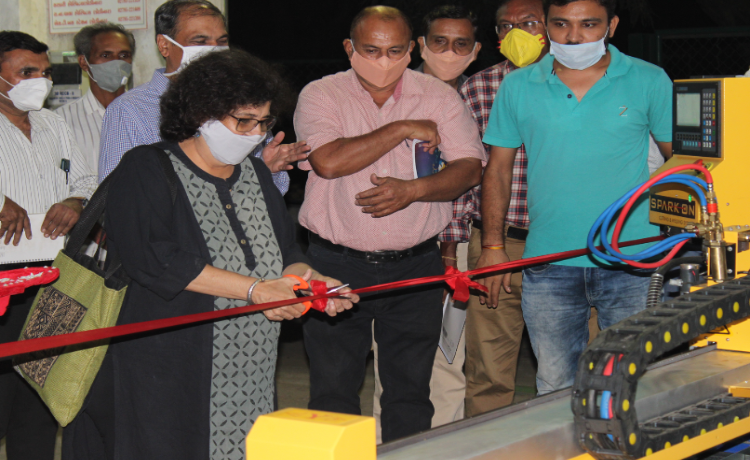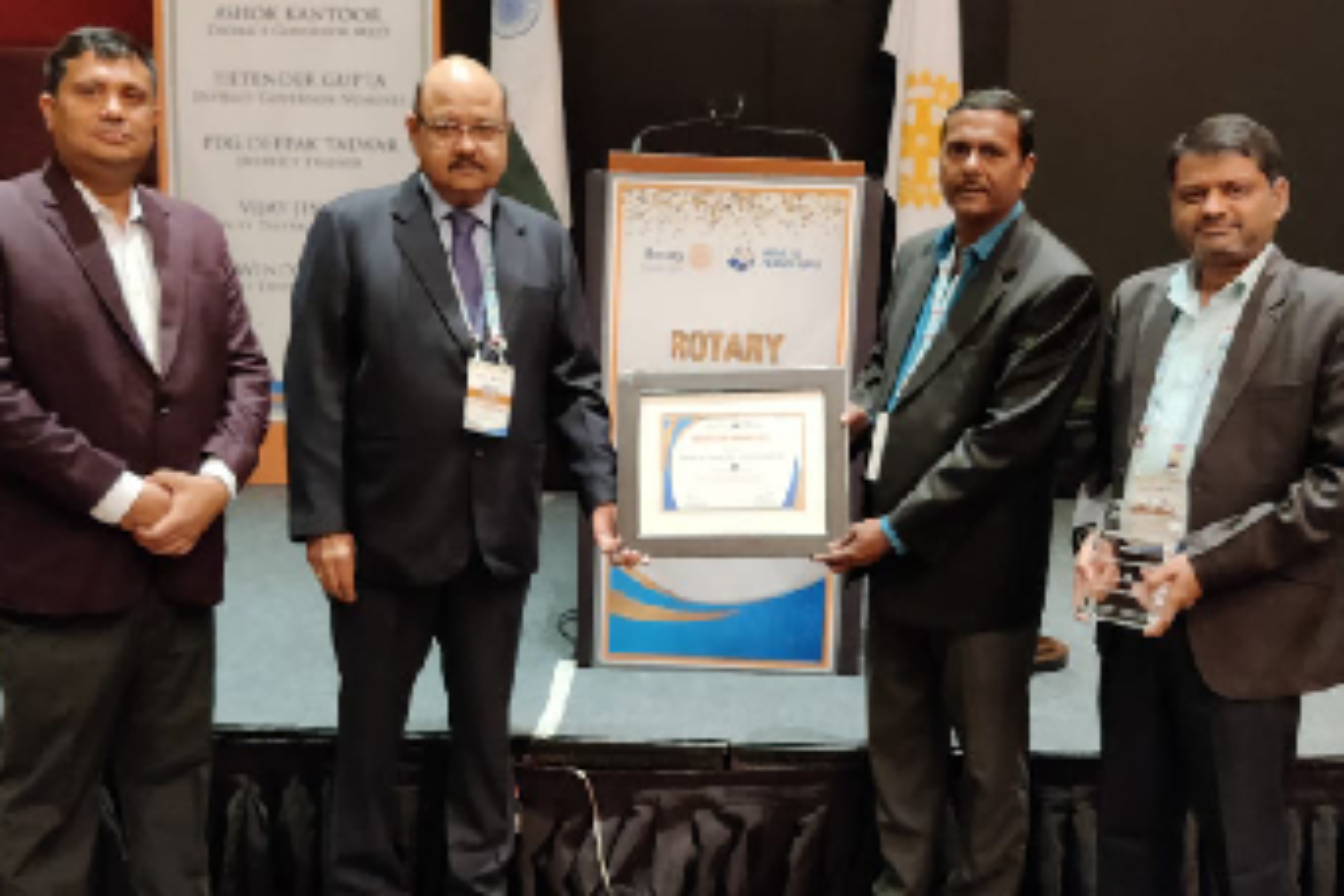The success of the Swacch Bharat Mission Gramin Phase 1, has played a crucial role in increasing sanitation facilities at household level across the country and many studies have attributed to a positive impact on community health especially women and children resulting in improvement in health indicators like child mortality rate and for that, there is a lot to celebrate. However rural India still has a long way to go to transform its solid and liquid waste management systems in order to achieve targets surrounding the sustainable development goals, and to bring to life Mahatma Gandhi’s vision of ‘total sanitation for all.’
Read more

‘Mental Health in Rural India? Is there a need?’ This is a question that echoes in the minds of many as we emerge from the intense stress of the pandemic, and is a key point of query for development sector professionals working at the grassroots.
Read more
Thanks to Sir Mathuradas Vissanji Education Trust, Ambuja Foundation was able to install a CNC plasma cutting machine at its Skill & Entrepreneurship Development Institute (SEDI) in Ambujanagar and Chandrapur to encourage girls’ participation in machine operations and manufacturing and an AI Lab in SEDI Bhagwanpur offering advanced skills to rural youth.
Read more
AU Skills Academy was launched as a CSR initiative of AU Small Finance Bank anchored by AU Foundation, to train rural youth in the region of Rajasthan. Ambuja Foundation’s SEDI acts as the implementing partner in training youth at AU Skills Academy, Jaipur.
Read more
When it comes to implementing development programs in rural communities, paraprofessionals have emerged as powerful conduits to help bridge the gap between an implementing agency and the community and to fast-track outcomes.
Read more
There is an urgent need for people in rural communities to change the way in which they view, and subsequently treat, community ponds. From being seen as a community dumping ground, to being viewed and valued as an abundant community resource, we must reignite the interdependent relationship between people and ponds.
Read more
Many of us assume that higher classes and board examinations are the only critical parts of a child’s education journey. However, this assumption couldn’t be further from the truth. It is the early school years, between the ages 3-8 years, which are the most important, as this is where core foundational skills such as ‘reading’ are developed – and without them firmly in place, children flounder as they progress through school.
Read more
In an economy as large as India, 95% of the industrial units in the country consist of small businesses which churn out 40% of total industrial output. Again, small businesses bag around 45% of the total exports from India, and after agriculture, small business is the second largest employment provider in the Indian economy.
Read more
Ambuja Foundation is now certified as a ‘Great Place to Work’ in India under the Non-Profit and Charity Organization. The core values in Ambuja Foundation’s DNA stood out during the process – being recognized for the strength and dedication of its team, the down to earth and loyal culture, its values & culture, humane yet professional attitude and ethos towards its own team and an unwavering commitment to enabling prosperity in rural India.
Read more
Ambuja Foundation’s Dadri was recently felicitated with a CSR Award by the Rotary Club (District 3011) in a glittering event in Gurgaon this October. The award appreciated the efforts of Ambuja Foundation in Water, Sanitation and Hygiene and its sustainable impact through the years. Ambuja Foundation has been working in Dadri, Ghaziabad, (Uttar Pradesh) for the last 15 years in areas of Agro-based Livelihood, Health and Sanitation, Education and Women Empowerment.
Read more
All thanks to NABARD, Ambuja Foundation has received a sanction to train 125 youth in Assistant Electrician course in 5 batches at SEDI Bathinda. This sanction is part of NABARD’s ongoing efforts in fostering Skill Development and Rural Entrepreneurship Development initiatives in rural areas.
Read more
The recent pandemic has averted our attention from the alarming water crisis India is facing, however the distressing problem remains. With short memories, many have forgotten that 21 Indian cities ran out of water in 2019, and that unless something radical is done, we face a grim future when it comes to water.
Read more

